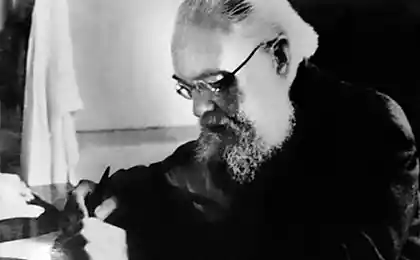902
Alexander Pavlov about the good bad taste
Philosopher and culturologist Alexander Pavlov talks about why bad taste is not always a bad thing (which is largely dedicated his book "the guilty pleasure"), ended when popular culture and what is the main feature of the postmodern. — What can the Humanities offer an understanding of mass culture? For you it's important that it is massive, or what is a low genre? — First of all, not even mass culture, and modern culture that need to be described. Second, the Humanities have to show what she's capable of. In this sense, the best option is to apply your theoretical and methodological apparatus for the study of modernity. Then the Humanities will show that it's really important. Second, popular culture can be high and may be low. Today, for example, when the series turned into a quality product, it was embarrassing to watch. That is, if you are watching certain TV shows, that is consume popular culture, this does not mean that your taste bad. In the 1990s, when high-quality the series had only one, "twin Peaks" and everything else was wonderful Latin American show, to say with a straight face that you loved "Wild angel" and that you have good taste, perhaps, was impossible. Another thing is that the 1990s are remarkable in that they were years of the formation of taste. However, because there are series that can be a marker of bad taste – "Truckers", "Streets of the broken lanterns". Of course, in that case, if you look at their non-reflexive and without irony. That is, mass culture is a prestigious and non-prestigious. So, a person with a good taste of prestige to watch "Streets of the broken lanterns" if he looks without irony? — Apparently not. Now even heavily blurred the boundaries of the concept of prestige. 
Alexander Pavlov read any humour — even an outhouse. — The truth is that the most interesting thing that can be in popular culture, is its lower classes. But before you realize it, consumers who believe that they have good taste, you should learn to respect her. If they are, of course, generally interested. At the moment, consumers emphasize interested – there are several strategies to enjoy the grass-roots culture. First: "research interest". You can hide behind research interest. Enjoying themselves shameful, but we all say, "I'm trying, it's just the area of my scientific interests." But since this strategy is not available to all, mostly use a different approach – "the irony".
In your childhood due to some reasons you were listening to, for example, songs of Mikhail Krug, and they since you sunk into the soul. Today, you understand what it is like "the bottom", but at the same time admit: "I love Michael Krug. Well, at least his first album. Yes, the first album nothing. A very sincere". However, you are aware that your friends who grew up in a different cultural environment is likely to condemn you for your sincere love to the Circle. What are you doing? You start to sneer: your love to the Circle supposedly not serious, you just want to laugh at him. In this case, your friends can connect to this installation, and then you will consume mass culture by means of irony. That is, you are aware that this is bad, you are also aware of the fact that you actually like (why else would it consume?), but you treat it lightly. In this case, you have some armor you signal that you have ideas about the boundaries of cultural hierarchies. After all, the products you consume, there is a certain cultural status within the society, and you make it clear that aware of it at the expense of your ironic attitude to products with a low status.
However, the problem is that in this situation the potential of grass-roots mass culture disappears. Ironic attitude does not involve Eros of cognition. Only the consumption. In addition, this irony slip only on top, which is the erosion of cultural hierarchies within the grassroots of popular culture. The fact that even the products inside the grass-roots mass culture of different potential. For example, Michael Circle is not the same as Ivan Kuchin. But both – chanson. A comparison of the two masters would have helped to say something about the nature of creativity of the Circle and its meaning. In the end, the Circle – is a popular grassroots mass culture. At the time, I even suggested that the term, which would describe his work – "hop-pop". The trouble is that you, of course, would elevate Michael Krug at the expense of irony, but also can't declare that he is indeed better than the chanson that exists around it. Even at the expense of your ironic perception of a grassroots product of mass culture and you deprive him of the potential that he has. Irony is good, but she can't be abused. Modern intellectuals this tool just suffered, maybe even more intuitive. — Do not you think that traditional opposition to elite culture/popular culture is now completely not working? In fact, the whole culture was somehow mass because of its availability. Has remained marginal, and some local, and everything else anyway – the mainstream. In the old coordinate system conditional von Trier was highbrow culture, but now he collects full halls, and it is clear that not all people who go to him, — intellectuals. — All the people who go to Lars von Trier, intellectuals or pseudo-intellectuals. Overall love Trier – it is fashionable, it makes you prestigious intellectual. At least it was a couple of years ago. I don't think the situation has changed dramatically. Trier – not a mass Director and never will be. Trier is a popular elitist phenomenon. It show limited release, but it has its audience. Of course, you can mistakenly attributed to pop culture due to the fact that it works on shocking and provocative that stirs interest from the audience. Of course, Trier "popside" due to the fact that young people sit in cafes and discuss, they liked the movie or not. As a rule, to discuss the movie at a more fundamental level they can't. But still this circle of young people is severely limited. Do not increase it. Once again: the hierarchy don't just remain – they prochutto, and they are needed. — That is, the criteria remain the same? — You cite the example of Trier because it mediaperson, which is associated with elitism. Now let's imagine that in the movie, hold a retrospective of early Bergman. How much do you think people will go watch Ingmar Bergman? — Units. Exactly. Here the unit – it is elitism. — Correctly. Bergmann in zero is the absolute absolute example of elitist art for a very limited circle. About what and speech. The hierarchy is preserved, you just confirmed it. — Bergman is still hard to classify a number of modern Directors. — I'm sorry. To have a taste, it is impossible to be aware of the only modern things. Bergman today – a cultural marker, as Trier. For example, I tell you: "you Know, I think that no one is more worthy since Bergman is not removed, and everything is removed after Bergman, is very bad." We are talking about the present. Assume that I see everything is removed, but to Bergman's nothing Mature enough, not even close. In this scenario elitism is not about what you consume modern culture, elite or non-elite. The elitism lies in the fact that you know including the history of culture, high and low. Probably to read by Chuck Palahniuk was less shameful than Coelho? But to read Dante, perhaps more prestigious than Palahniuk? Well, according to these criteria, Yes. — And others do not. We return to the problem of taste. The fact that I am sure that the taste is not divided only into good and bad. I think we need to talk about the whole matrix of taste. Put simply, we can divide the types of flavors in the following way: excellent taste, good taste, bad taste and bad taste. Each of these concepts is divided into two – for example, "good bad taste and bad bad taste." The first distinguishes empathy and reflection, the second is the lack of reflection and antipathy. The truth is, typically the taste suggests aggression: you as the bearer of good taste annoying supposedly bad taste, you don't like wearing such man. However, such "good taste" – rather "good bad taste". Because the man who judges so that they reflect.

For example, you see a gorgeous woman in high heels, bright tights, leopard fur coat, luxurious fleece and is incredibly bright makeup. A recognizable image? To believe that she has no taste, is the biggest mistake. She is dressed exactly as it is assumed the boundaries in which it exists: social environment adopted in this standards of beauty, etc. We can agree that it is vulgar, but that is made by all rules of the culture of the cell in which she is forced to be. Due to excessiveness and vulgarity we can attribute her bad taste, but can you blame her for bad taste? I insist that there is. Unfortunately, as a rule, any taste – good or bad – non-reflexive and aggressive. We are talking about the dislikes. And antipathy is a complex word, it implies not only a lack of empathy, but no sympathy. You may love Opera and despise the mob because she does not love her. But you can understand why someone who has a good reason not to like Opera, although you're crazy about her. The first "bad good taste" and "good taste".
Same great taste different from the good that consumes a good prestige popular culture (say, fashion series), while great focused more on high culture. You can tell that there are people who consume high culture, and mass high. The truth is that the taste is always the border. As soon as your preferences have become blurred, it comes rather bad taste. That's why we so often hide behind irony. It protects our supposedly good taste. In the end, it was irony indicates your awareness of the cultural status of the product, over which you laugh.
To illustrate his point with example from the movie "Bad teacher" is a good bad taste. But the opposite is true. Bad taste can be too aggressive. For example, in the movie Jake Kasdan "Bad teacher" when the main character tells his former fiance from high society anything bad about Opera, he yells: "Yes, if the younger generation will stop going to the Opera, you know what? Opera will die! Without Opera we will be in deep shit!". So the creators of the American Comedy speak about the rich snobs who worship high culture. Many find these ideas congenial.
What can the intellectual? Intellectual can relate to the bad taste (including their own) with the reflection – not to be aggressive and not feel anger, even to the lovers of Opera. Or on the contrary an intellectual can be a fan of Opera, but then he must not despise those who love movies with Adam Sandler. Why? It seems to me that an intellectual is someone who can and consume, and interpret all spheres of culture. — To interpret – Yes. Consume – no. Now, you have named me rather an intellectual or pinteraction? — Intellectual. — Thank you! Very flattering. Suppose I don't go to the theatre and love it. Maybe I won't even make taste judgments about theatrical productions, not to interpret? Assume that this kind of art sickens me. And you tell me if I can do it. Maybe he really could, but I just don't like. In General, due to the fact that I mostly consume foods that are more grass-roots, mass culture, makes me the bearer of the bad taste. But I'm not trying to prove to you that my taste is good. Suppose I like vulgar and vulgar things. In the matrix of the taste I take a specific cell, but I don't deny you love the Opera or fashion shows. When people with good taste rejects all of this as low and vulgar, he falls into "good bad taste", as in fact has no idea about the cultural grid, only becoming isolated in his cell.

— In the present era the concept of bad taste, bad taste, high and low at least require rethinking. — When I say "bad taste", it does not mean that it is bad. On the contrary, I believe that the engine of culture, the bearers of the bad taste. For example, Quentin Tarantino has estetizirovat daily. Even more, consuming a large amount of a bad movie, in the end, he, the man of bad taste, has created a number of recognized masterpieces. It may not taste great, but bad his paintings accurately, few would call. Although youth even domestic critics have accused him of thought: how ironic!
Or Stanley Kubrick. A favorite of intellectuals. The standard of Director to someone who has not even good, but great taste. Meanwhile, it was once said Vadim Tsymbursky about Mandelstam, uncivilized man, in love with the culture. In his films we can hear classical music. But, for example, in "Barry Lyndon" it is rather tasteless. A haunting excerpt from "Sarabande" by Handel, is more of a melody for your ringtone. Even Kubrick, for example, loved the cartoon woody woodpecker, and even Steve Martin. They even wanted him to make a movie. You know, Steve Martin is not even as if about good taste. Kubrick was able to read dead white men, to listen to classical music, but I can't say how well he understood these things. Meanwhile, it is this love for high culture, bordering on love shameful things, allowed Kubrick to shoot masterpieces on the brink of art and popular cinema.
You eat at McDonald's go? — Of course. — You ashamed? — Sometimes Yes, sometimes no. There's no shame in what cases? When you come in the morning and no one was there? I want to say that sometimes it is difficult to admit that we go to McDonald's than that we watch pornography. Our taste is not emancipirana. That's the problem. — What is the way you seem to be connected? — With the preservation of hierarchies, with our notion of elitism, vulgarity and popularity. You know that McDonald's is low. You come back and think, "I eat fast food, shame on...". There are things and phenomena that have emancipirana. But McDonald's is not emancipated. Yes, you can go to McDonald's and eat there. But if we are not familiar and we need to meet, you can't call me at McDonald's, right? In these circumstances, no. And I don't you appoint a meeting there. Neither you nor I, even if we went to McDonald's, did not invite each other to produce a bad impression. — McDonald's is a fast food, low culture, which is not pretending to be something else. But there is pseudointellectual culture, here it seems a real bad taste. — "McDonald's" – is bad taste. "Good bad taste", if you know where you came from, and "bad bad taste", if you find this trendy restaurant. And Coelho and Nolan – "good bad taste". You say, "If I liked Coelho, it would be a shame." The fact is that if you like Coelho, you just have to realize that it's gone, and realize what it takes place in the cultural hierarchy. You understand that Coelho and Murakami is bad, but read. And that's fine. You're reflective, you like and other things. More than decent. If you are reflective, like vulgar literature, then there is a problem. Then you have the same "good bad taste". Please note that reading Coelho for you much more embarrassing than going to McDonald's. — The danger lies exactly in this bad good. In this case we are talking about social conditioning of taste. Imagine that Coelho does not have the status it has in the eyes of those insulting vulgar and common place. Imagine that you read his first book and think, "This is so cool!". Coelho became vulgar only after he has acquired this aura of vulgarity, and in another it is perceived. Assume that books written by him "nothing", but now they are not measurable due to their socio-cultural status. Is the problem of "the Master and Margarita". The fact that it's a good book that has acquired such status. And Coelho – this is a bad book. Okay. Imagine that Paulo Coelho has written one book, and it has not acquired such status. You could say something bad about her? — Probably I would have nothing to say. — Here. Still, when we say that Coelho is bad, it is a Convention. Stress, being cultural phenomenon, the artifact in society including is determined by this society, regardless of its substantive qualities. There are two criteria to evaluate popular phenomenon. The first criterion is immanent ontology of the object, its real quality. In this sense, your personal opinion regarding this quality rather refers to its noumenal essence, to try to understand it objectively. The second criterion is socio-cultural status of the subject in question, his social phenomenology. In this sense, you make two judgments. One is a judgment only for your taste. The second is your awareness that to love and to praise / to hate and to blame one thing or another is common place. Thus, for example, you may love the book "the Master and Margarita", but her social phenomenology is such that it actually can't. Because in that case, your love for this work has something to say around about your taste. Like, you love vulgar things.
I only act for the liberation of taste. Many people are still ashamed to admit the love of something shameful, which in fact there is nothing to be ashamed of. You just have to understand that this is really bad, but if you really like, you just occupy a certain position in the matrix taste. Nobody has the right to judge you. When I say "bad taste", I don't mean that it is bad. I even imply that it was good. Because, as I said, that's a bad taste move the culture forward. I thought postmodernism was over. — It is not over. Why do you think so? Let's just say he's obviously not considered actual fresh paradigm. But it is not an alternative appeared. — The problem of postmodernism is that it cannot go beyond postmodernism. Any conversation about, for instance, metamaterial in fact will still be postmodern. That is what will follow postmodernism, it a priori turns out to be postmodern, even if it is "post-postmodernism". — Well, it changes but ended up as an actual new approach. — I've always wondered this trait of intellectuals in Russia to act rashly. Remember that many teachers, when I was a student, denounced postmodernism, even without understanding what it is. This to me has always resembled a kind of unconscious "theory of Russian socialism", which in the nineteenth century was to ensure that Russia can come to socialism, bypassing the stage of capitalism, due to the presence of peasant communities. Like, will overcome postmodernism without having to he came here and without having to know what it is. In Russia, the postmodern, by definition, was supposed to come later. And I'm not sure that he came here – except talk about it. In the end, it began to deny immediately, even without realizing it. And today, judging by your words, postmodern is irrelevant. However, the intellectuals always had a weakness to declare the end of something – a person, history, light and yet postmodern. By the way, I want to draw your attention to the fact that one of the key concepts to describe the postmodern has always been the irony. Since some of us are everything ironically, this means that postmodernism will not go away and even become an integral part of our worldview. However there is a caveat. If you noticed, today, here and there mention in passing the term "post-irony". If you ask a Russian about Google this term, you especially won't say anything. The most striking thing is that we famously chop off the shoulder, using the term, although in reality we were never ironic. Irony — a very rare quality, affordable little. The hell what's going on in social networks — not quite irony, but rather the total banter. Which, incidentally, is not exactly evidence of a new seriousness. However, even to abandon it especially no one is going. Before to abandon irony, we need to comprehend, to master, at least understand what it is. What kind of post-irony may be involved, if we don't quite learned how to be ironic? Even jokes about what a hipster walk into a bar, because it's post-irony, the real irony. It's so ironic. In the book "the guilty pleasure" Pavlov explains why intellectuals should not shun popular culture. However, postmodernism is really changing. And this is his strength. Please note that you first told me about the erosion of cultural boundaries (another symptom of postmodernism), and then buried postmodernism. Do you think that there is a contradiction? But something still ends. We, philosophers, as I noted above, we love to declare the death or end of something. So, while I have a hunch that ends that for a long time for post-modernism was decisive. It's popular culture. In the narrow sense of the word. Not massive, but it is popular.
You know what, what if all this time we've taken the popular culture for granted, but in fact it turns out that she only – only the most powerful movement in contemporary culture generally – not more than one of the forms of culture as such? Surrealism, for example. Unlike popular culture from other forms of culture, however, is that the authors remain in supporting roles (important, but secondary – Andy Warhol, Quentin Tarantino, Steve jobs, for example), while at the forefront of her characters. Popular culture began, probably, about with Mickey mouse, Elvis and Marilyn Monroe and ends somewhere in the "South Park". This feverish anxiety of "South Park" to grasp the latest trends in the culture – not that other, as a neurosis, the fear to cease to be modern and at the same time a desperate attempt to stay popular. But popular become no longer possible, you can only be modern or mass. The popularity of durable, present modernity a priori transient.
Grumpy cat doesn't have time for the end of popular culture. The terminator, Mickey mouse, zombies and vampires, Mario and maybe an IPhone – heroes of popular culture. Appear today are the heroes? The truth is that even Grumpy cat is not drawn to the character. What it means in alignment with old Tom?
At some point, popular culture came to an end, and we didn't notice it. And with its end we entered a new stage of the postmodern era, repetition, play, and mesaba. Tarantino has recorded this transition, and "South Park" secured. In this sense, mass culture offers nothing of any popular in the sense that the new hero of the masses has taken root and remained the icon. In this case, how can we describe the changing post-modernism? I'll try to explain using an example. In the latest film by David Fincher is a great scene. This is actually the movie about the taste. The main character in the performance of Rosamund pike praises the character of Neil Patrick Harris for his excellent taste: "do You like classical Symphony, Impressionists, quote Proust in French. And he (her husband, the taste of which she condemns) likes movies with Adam Sandler". What tells us this statement? First, Amy (pike) mentions classical art forms: classical music, visual arts, literature. Second, almost all of these forms of art belong to the first half of the twentieth century. Thirdly, they are non-mass. That is, they are works of high art of the modern era. Thus, it opposes the good taste of bad taste into the old art form vs new form (movie), high versus low, modern versus postmodern. Pay particular attention to: the availability of excellent taste suggests a rather earlier era (modernist) than the idea of the modern samples of high art. But it is – a lively taste. I should add also that of all the movie genres she chose Comedy is the lowest genre.
But why modern? Why from the literature it allocates exactly Proust, and nobody calls of the Impressionists? To avoid confusing the audience, who had heard about Proust, but painting skills are very good? Let. But we know that she loved her husband for his reflection, involving (self -) irony. When husband laugh at "intellectual", which allegedly tells everyone about your diploma, about Proust. He mocks me when it is recognized that supposedly can't pronounce the word "celery" and doesn't know how to pronounce the word "carpaccio". Later we learn that he is also Adam Sandler loves. But he realizes the boundaries of his ignorance and is able to laugh at the fact that he did not know about some things. However, he teaches in a University creative writing course. But most importantly, we must understand that Adam Sandler played, say, Paul Thomas Anderson, and not the most stupid films James e Brooks and Judd Apatow. Knowing that Sandler is not only vulgar Comedy, should force us to assume that the character Ben Affleck is not so bad with taste. Probably because we know that she despises the hero Neil Patrick Harris, it can be a form of insult (he knows nothing of Adam Sandler). That's why it's so important to understand the varieties of shit. The nuances allow us to better understand the mind of the bearer of a taste. However, it is obvious that the character Ben Affleck "bad taste" good though, and the hero of Neil Patrick Harris's "great taste", although rather bad.
So now we come to the main point.
You know, today Dante remains Dante, and Shakespeare Shakespeare. Despite the fact that both are now esteemed the great, for example, in the nineteenth century were of different status within the cultural hierarchy. So, John Ruskin, English writer, critic and art theorist, and most importantly – a man in love with the beautiful, in his "Lectures on art" compared to Dante and Shakespeare on the basis of their relationship to "all dirty". For good taste, whom Ruskin had no doubt, in the nineteenth century Shakespeare with his alleged desire to pander to the crowd was abusive, not an example of the "Comedy" of Dante, but still "divine Comedy". But, as we know, Dante felt the need to write his "Comedy" not in Latin but in the native language of the people. From Ruskin went even Chaucer – it "a perfect specimen of the English mind", which sometimes "stoop to flirting with bad instincts". Let us focus on who we are today common references in today's popular culture? I do not remember that Bart Simpson mentioned about Chaucer or Dante, but meanwhile there is mention of "hamlet," saying, "I Never would have thought that the play in which murder can be so boring." But this does not mean that Shakespeare, the Reskin is actually outraged over the "bad taste" equal to "the Simpsons"? But it's not just from Director Peter Bogdanovich, and the material, which allows the reflexive spectator to hold the "distinction" high and low.
A key characteristic of the current situation in culture is that modernism is alive. Not modernist, but modernism as an epistemological category and, if anything, as an ideology in the broadest sense. Thanks to him, saved the very cultural hierarchies that, however, can legitimately be violated thanks to the tools of postmodernism – irony and intertextuality. The desire to declare the post-irony is not the overcoming of postmodernism, but a return to modernism.
However, popular culture that abolishes that is modernism (as described modernism after Marx American philosopher Marshall Berman, "all solid dissolves in air"), was the meta-narrative that postmodernism supposedly doesn't trust. And the paradox is that modernism abolished this "postmodern meta-narrative". This coexistence of modernism and postmodernism explains the cultural conflicts of our era. And seeing them fight is the most important thing today can be a philosopher. Text: Inna Lua Prophets
Source: theoryandpractice.ru

Alexander Pavlov read any humour — even an outhouse. — The truth is that the most interesting thing that can be in popular culture, is its lower classes. But before you realize it, consumers who believe that they have good taste, you should learn to respect her. If they are, of course, generally interested. At the moment, consumers emphasize interested – there are several strategies to enjoy the grass-roots culture. First: "research interest". You can hide behind research interest. Enjoying themselves shameful, but we all say, "I'm trying, it's just the area of my scientific interests." But since this strategy is not available to all, mostly use a different approach – "the irony".
In your childhood due to some reasons you were listening to, for example, songs of Mikhail Krug, and they since you sunk into the soul. Today, you understand what it is like "the bottom", but at the same time admit: "I love Michael Krug. Well, at least his first album. Yes, the first album nothing. A very sincere". However, you are aware that your friends who grew up in a different cultural environment is likely to condemn you for your sincere love to the Circle. What are you doing? You start to sneer: your love to the Circle supposedly not serious, you just want to laugh at him. In this case, your friends can connect to this installation, and then you will consume mass culture by means of irony. That is, you are aware that this is bad, you are also aware of the fact that you actually like (why else would it consume?), but you treat it lightly. In this case, you have some armor you signal that you have ideas about the boundaries of cultural hierarchies. After all, the products you consume, there is a certain cultural status within the society, and you make it clear that aware of it at the expense of your ironic attitude to products with a low status.
However, the problem is that in this situation the potential of grass-roots mass culture disappears. Ironic attitude does not involve Eros of cognition. Only the consumption. In addition, this irony slip only on top, which is the erosion of cultural hierarchies within the grassroots of popular culture. The fact that even the products inside the grass-roots mass culture of different potential. For example, Michael Circle is not the same as Ivan Kuchin. But both – chanson. A comparison of the two masters would have helped to say something about the nature of creativity of the Circle and its meaning. In the end, the Circle – is a popular grassroots mass culture. At the time, I even suggested that the term, which would describe his work – "hop-pop". The trouble is that you, of course, would elevate Michael Krug at the expense of irony, but also can't declare that he is indeed better than the chanson that exists around it. Even at the expense of your ironic perception of a grassroots product of mass culture and you deprive him of the potential that he has. Irony is good, but she can't be abused. Modern intellectuals this tool just suffered, maybe even more intuitive. — Do not you think that traditional opposition to elite culture/popular culture is now completely not working? In fact, the whole culture was somehow mass because of its availability. Has remained marginal, and some local, and everything else anyway – the mainstream. In the old coordinate system conditional von Trier was highbrow culture, but now he collects full halls, and it is clear that not all people who go to him, — intellectuals. — All the people who go to Lars von Trier, intellectuals or pseudo-intellectuals. Overall love Trier – it is fashionable, it makes you prestigious intellectual. At least it was a couple of years ago. I don't think the situation has changed dramatically. Trier – not a mass Director and never will be. Trier is a popular elitist phenomenon. It show limited release, but it has its audience. Of course, you can mistakenly attributed to pop culture due to the fact that it works on shocking and provocative that stirs interest from the audience. Of course, Trier "popside" due to the fact that young people sit in cafes and discuss, they liked the movie or not. As a rule, to discuss the movie at a more fundamental level they can't. But still this circle of young people is severely limited. Do not increase it. Once again: the hierarchy don't just remain – they prochutto, and they are needed. — That is, the criteria remain the same? — You cite the example of Trier because it mediaperson, which is associated with elitism. Now let's imagine that in the movie, hold a retrospective of early Bergman. How much do you think people will go watch Ingmar Bergman? — Units. Exactly. Here the unit – it is elitism. — Correctly. Bergmann in zero is the absolute absolute example of elitist art for a very limited circle. About what and speech. The hierarchy is preserved, you just confirmed it. — Bergman is still hard to classify a number of modern Directors. — I'm sorry. To have a taste, it is impossible to be aware of the only modern things. Bergman today – a cultural marker, as Trier. For example, I tell you: "you Know, I think that no one is more worthy since Bergman is not removed, and everything is removed after Bergman, is very bad." We are talking about the present. Assume that I see everything is removed, but to Bergman's nothing Mature enough, not even close. In this scenario elitism is not about what you consume modern culture, elite or non-elite. The elitism lies in the fact that you know including the history of culture, high and low. Probably to read by Chuck Palahniuk was less shameful than Coelho? But to read Dante, perhaps more prestigious than Palahniuk? Well, according to these criteria, Yes. — And others do not. We return to the problem of taste. The fact that I am sure that the taste is not divided only into good and bad. I think we need to talk about the whole matrix of taste. Put simply, we can divide the types of flavors in the following way: excellent taste, good taste, bad taste and bad taste. Each of these concepts is divided into two – for example, "good bad taste and bad bad taste." The first distinguishes empathy and reflection, the second is the lack of reflection and antipathy. The truth is, typically the taste suggests aggression: you as the bearer of good taste annoying supposedly bad taste, you don't like wearing such man. However, such "good taste" – rather "good bad taste". Because the man who judges so that they reflect.

For example, you see a gorgeous woman in high heels, bright tights, leopard fur coat, luxurious fleece and is incredibly bright makeup. A recognizable image? To believe that she has no taste, is the biggest mistake. She is dressed exactly as it is assumed the boundaries in which it exists: social environment adopted in this standards of beauty, etc. We can agree that it is vulgar, but that is made by all rules of the culture of the cell in which she is forced to be. Due to excessiveness and vulgarity we can attribute her bad taste, but can you blame her for bad taste? I insist that there is. Unfortunately, as a rule, any taste – good or bad – non-reflexive and aggressive. We are talking about the dislikes. And antipathy is a complex word, it implies not only a lack of empathy, but no sympathy. You may love Opera and despise the mob because she does not love her. But you can understand why someone who has a good reason not to like Opera, although you're crazy about her. The first "bad good taste" and "good taste".
Same great taste different from the good that consumes a good prestige popular culture (say, fashion series), while great focused more on high culture. You can tell that there are people who consume high culture, and mass high. The truth is that the taste is always the border. As soon as your preferences have become blurred, it comes rather bad taste. That's why we so often hide behind irony. It protects our supposedly good taste. In the end, it was irony indicates your awareness of the cultural status of the product, over which you laugh.

To illustrate his point with example from the movie "Bad teacher" is a good bad taste. But the opposite is true. Bad taste can be too aggressive. For example, in the movie Jake Kasdan "Bad teacher" when the main character tells his former fiance from high society anything bad about Opera, he yells: "Yes, if the younger generation will stop going to the Opera, you know what? Opera will die! Without Opera we will be in deep shit!". So the creators of the American Comedy speak about the rich snobs who worship high culture. Many find these ideas congenial.
What can the intellectual? Intellectual can relate to the bad taste (including their own) with the reflection – not to be aggressive and not feel anger, even to the lovers of Opera. Or on the contrary an intellectual can be a fan of Opera, but then he must not despise those who love movies with Adam Sandler. Why? It seems to me that an intellectual is someone who can and consume, and interpret all spheres of culture. — To interpret – Yes. Consume – no. Now, you have named me rather an intellectual or pinteraction? — Intellectual. — Thank you! Very flattering. Suppose I don't go to the theatre and love it. Maybe I won't even make taste judgments about theatrical productions, not to interpret? Assume that this kind of art sickens me. And you tell me if I can do it. Maybe he really could, but I just don't like. In General, due to the fact that I mostly consume foods that are more grass-roots, mass culture, makes me the bearer of the bad taste. But I'm not trying to prove to you that my taste is good. Suppose I like vulgar and vulgar things. In the matrix of the taste I take a specific cell, but I don't deny you love the Opera or fashion shows. When people with good taste rejects all of this as low and vulgar, he falls into "good bad taste", as in fact has no idea about the cultural grid, only becoming isolated in his cell.

— In the present era the concept of bad taste, bad taste, high and low at least require rethinking. — When I say "bad taste", it does not mean that it is bad. On the contrary, I believe that the engine of culture, the bearers of the bad taste. For example, Quentin Tarantino has estetizirovat daily. Even more, consuming a large amount of a bad movie, in the end, he, the man of bad taste, has created a number of recognized masterpieces. It may not taste great, but bad his paintings accurately, few would call. Although youth even domestic critics have accused him of thought: how ironic!
Or Stanley Kubrick. A favorite of intellectuals. The standard of Director to someone who has not even good, but great taste. Meanwhile, it was once said Vadim Tsymbursky about Mandelstam, uncivilized man, in love with the culture. In his films we can hear classical music. But, for example, in "Barry Lyndon" it is rather tasteless. A haunting excerpt from "Sarabande" by Handel, is more of a melody for your ringtone. Even Kubrick, for example, loved the cartoon woody woodpecker, and even Steve Martin. They even wanted him to make a movie. You know, Steve Martin is not even as if about good taste. Kubrick was able to read dead white men, to listen to classical music, but I can't say how well he understood these things. Meanwhile, it is this love for high culture, bordering on love shameful things, allowed Kubrick to shoot masterpieces on the brink of art and popular cinema.
You eat at McDonald's go? — Of course. — You ashamed? — Sometimes Yes, sometimes no. There's no shame in what cases? When you come in the morning and no one was there? I want to say that sometimes it is difficult to admit that we go to McDonald's than that we watch pornography. Our taste is not emancipirana. That's the problem. — What is the way you seem to be connected? — With the preservation of hierarchies, with our notion of elitism, vulgarity and popularity. You know that McDonald's is low. You come back and think, "I eat fast food, shame on...". There are things and phenomena that have emancipirana. But McDonald's is not emancipated. Yes, you can go to McDonald's and eat there. But if we are not familiar and we need to meet, you can't call me at McDonald's, right? In these circumstances, no. And I don't you appoint a meeting there. Neither you nor I, even if we went to McDonald's, did not invite each other to produce a bad impression. — McDonald's is a fast food, low culture, which is not pretending to be something else. But there is pseudointellectual culture, here it seems a real bad taste. — "McDonald's" – is bad taste. "Good bad taste", if you know where you came from, and "bad bad taste", if you find this trendy restaurant. And Coelho and Nolan – "good bad taste". You say, "If I liked Coelho, it would be a shame." The fact is that if you like Coelho, you just have to realize that it's gone, and realize what it takes place in the cultural hierarchy. You understand that Coelho and Murakami is bad, but read. And that's fine. You're reflective, you like and other things. More than decent. If you are reflective, like vulgar literature, then there is a problem. Then you have the same "good bad taste". Please note that reading Coelho for you much more embarrassing than going to McDonald's. — The danger lies exactly in this bad good. In this case we are talking about social conditioning of taste. Imagine that Coelho does not have the status it has in the eyes of those insulting vulgar and common place. Imagine that you read his first book and think, "This is so cool!". Coelho became vulgar only after he has acquired this aura of vulgarity, and in another it is perceived. Assume that books written by him "nothing", but now they are not measurable due to their socio-cultural status. Is the problem of "the Master and Margarita". The fact that it's a good book that has acquired such status. And Coelho – this is a bad book. Okay. Imagine that Paulo Coelho has written one book, and it has not acquired such status. You could say something bad about her? — Probably I would have nothing to say. — Here. Still, when we say that Coelho is bad, it is a Convention. Stress, being cultural phenomenon, the artifact in society including is determined by this society, regardless of its substantive qualities. There are two criteria to evaluate popular phenomenon. The first criterion is immanent ontology of the object, its real quality. In this sense, your personal opinion regarding this quality rather refers to its noumenal essence, to try to understand it objectively. The second criterion is socio-cultural status of the subject in question, his social phenomenology. In this sense, you make two judgments. One is a judgment only for your taste. The second is your awareness that to love and to praise / to hate and to blame one thing or another is common place. Thus, for example, you may love the book "the Master and Margarita", but her social phenomenology is such that it actually can't. Because in that case, your love for this work has something to say around about your taste. Like, you love vulgar things.
I only act for the liberation of taste. Many people are still ashamed to admit the love of something shameful, which in fact there is nothing to be ashamed of. You just have to understand that this is really bad, but if you really like, you just occupy a certain position in the matrix taste. Nobody has the right to judge you. When I say "bad taste", I don't mean that it is bad. I even imply that it was good. Because, as I said, that's a bad taste move the culture forward. I thought postmodernism was over. — It is not over. Why do you think so? Let's just say he's obviously not considered actual fresh paradigm. But it is not an alternative appeared. — The problem of postmodernism is that it cannot go beyond postmodernism. Any conversation about, for instance, metamaterial in fact will still be postmodern. That is what will follow postmodernism, it a priori turns out to be postmodern, even if it is "post-postmodernism". — Well, it changes but ended up as an actual new approach. — I've always wondered this trait of intellectuals in Russia to act rashly. Remember that many teachers, when I was a student, denounced postmodernism, even without understanding what it is. This to me has always resembled a kind of unconscious "theory of Russian socialism", which in the nineteenth century was to ensure that Russia can come to socialism, bypassing the stage of capitalism, due to the presence of peasant communities. Like, will overcome postmodernism without having to he came here and without having to know what it is. In Russia, the postmodern, by definition, was supposed to come later. And I'm not sure that he came here – except talk about it. In the end, it began to deny immediately, even without realizing it. And today, judging by your words, postmodern is irrelevant. However, the intellectuals always had a weakness to declare the end of something – a person, history, light and yet postmodern. By the way, I want to draw your attention to the fact that one of the key concepts to describe the postmodern has always been the irony. Since some of us are everything ironically, this means that postmodernism will not go away and even become an integral part of our worldview. However there is a caveat. If you noticed, today, here and there mention in passing the term "post-irony". If you ask a Russian about Google this term, you especially won't say anything. The most striking thing is that we famously chop off the shoulder, using the term, although in reality we were never ironic. Irony — a very rare quality, affordable little. The hell what's going on in social networks — not quite irony, but rather the total banter. Which, incidentally, is not exactly evidence of a new seriousness. However, even to abandon it especially no one is going. Before to abandon irony, we need to comprehend, to master, at least understand what it is. What kind of post-irony may be involved, if we don't quite learned how to be ironic? Even jokes about what a hipster walk into a bar, because it's post-irony, the real irony. It's so ironic. In the book "the guilty pleasure" Pavlov explains why intellectuals should not shun popular culture. However, postmodernism is really changing. And this is his strength. Please note that you first told me about the erosion of cultural boundaries (another symptom of postmodernism), and then buried postmodernism. Do you think that there is a contradiction? But something still ends. We, philosophers, as I noted above, we love to declare the death or end of something. So, while I have a hunch that ends that for a long time for post-modernism was decisive. It's popular culture. In the narrow sense of the word. Not massive, but it is popular.
You know what, what if all this time we've taken the popular culture for granted, but in fact it turns out that she only – only the most powerful movement in contemporary culture generally – not more than one of the forms of culture as such? Surrealism, for example. Unlike popular culture from other forms of culture, however, is that the authors remain in supporting roles (important, but secondary – Andy Warhol, Quentin Tarantino, Steve jobs, for example), while at the forefront of her characters. Popular culture began, probably, about with Mickey mouse, Elvis and Marilyn Monroe and ends somewhere in the "South Park". This feverish anxiety of "South Park" to grasp the latest trends in the culture – not that other, as a neurosis, the fear to cease to be modern and at the same time a desperate attempt to stay popular. But popular become no longer possible, you can only be modern or mass. The popularity of durable, present modernity a priori transient.

Grumpy cat doesn't have time for the end of popular culture. The terminator, Mickey mouse, zombies and vampires, Mario and maybe an IPhone – heroes of popular culture. Appear today are the heroes? The truth is that even Grumpy cat is not drawn to the character. What it means in alignment with old Tom?
At some point, popular culture came to an end, and we didn't notice it. And with its end we entered a new stage of the postmodern era, repetition, play, and mesaba. Tarantino has recorded this transition, and "South Park" secured. In this sense, mass culture offers nothing of any popular in the sense that the new hero of the masses has taken root and remained the icon. In this case, how can we describe the changing post-modernism? I'll try to explain using an example. In the latest film by David Fincher is a great scene. This is actually the movie about the taste. The main character in the performance of Rosamund pike praises the character of Neil Patrick Harris for his excellent taste: "do You like classical Symphony, Impressionists, quote Proust in French. And he (her husband, the taste of which she condemns) likes movies with Adam Sandler". What tells us this statement? First, Amy (pike) mentions classical art forms: classical music, visual arts, literature. Second, almost all of these forms of art belong to the first half of the twentieth century. Thirdly, they are non-mass. That is, they are works of high art of the modern era. Thus, it opposes the good taste of bad taste into the old art form vs new form (movie), high versus low, modern versus postmodern. Pay particular attention to: the availability of excellent taste suggests a rather earlier era (modernist) than the idea of the modern samples of high art. But it is – a lively taste. I should add also that of all the movie genres she chose Comedy is the lowest genre.
But why modern? Why from the literature it allocates exactly Proust, and nobody calls of the Impressionists? To avoid confusing the audience, who had heard about Proust, but painting skills are very good? Let. But we know that she loved her husband for his reflection, involving (self -) irony. When husband laugh at "intellectual", which allegedly tells everyone about your diploma, about Proust. He mocks me when it is recognized that supposedly can't pronounce the word "celery" and doesn't know how to pronounce the word "carpaccio". Later we learn that he is also Adam Sandler loves. But he realizes the boundaries of his ignorance and is able to laugh at the fact that he did not know about some things. However, he teaches in a University creative writing course. But most importantly, we must understand that Adam Sandler played, say, Paul Thomas Anderson, and not the most stupid films James e Brooks and Judd Apatow. Knowing that Sandler is not only vulgar Comedy, should force us to assume that the character Ben Affleck is not so bad with taste. Probably because we know that she despises the hero Neil Patrick Harris, it can be a form of insult (he knows nothing of Adam Sandler). That's why it's so important to understand the varieties of shit. The nuances allow us to better understand the mind of the bearer of a taste. However, it is obvious that the character Ben Affleck "bad taste" good though, and the hero of Neil Patrick Harris's "great taste", although rather bad.
So now we come to the main point.
You know, today Dante remains Dante, and Shakespeare Shakespeare. Despite the fact that both are now esteemed the great, for example, in the nineteenth century were of different status within the cultural hierarchy. So, John Ruskin, English writer, critic and art theorist, and most importantly – a man in love with the beautiful, in his "Lectures on art" compared to Dante and Shakespeare on the basis of their relationship to "all dirty". For good taste, whom Ruskin had no doubt, in the nineteenth century Shakespeare with his alleged desire to pander to the crowd was abusive, not an example of the "Comedy" of Dante, but still "divine Comedy". But, as we know, Dante felt the need to write his "Comedy" not in Latin but in the native language of the people. From Ruskin went even Chaucer – it "a perfect specimen of the English mind", which sometimes "stoop to flirting with bad instincts". Let us focus on who we are today common references in today's popular culture? I do not remember that Bart Simpson mentioned about Chaucer or Dante, but meanwhile there is mention of "hamlet," saying, "I Never would have thought that the play in which murder can be so boring." But this does not mean that Shakespeare, the Reskin is actually outraged over the "bad taste" equal to "the Simpsons"? But it's not just from Director Peter Bogdanovich, and the material, which allows the reflexive spectator to hold the "distinction" high and low.
A key characteristic of the current situation in culture is that modernism is alive. Not modernist, but modernism as an epistemological category and, if anything, as an ideology in the broadest sense. Thanks to him, saved the very cultural hierarchies that, however, can legitimately be violated thanks to the tools of postmodernism – irony and intertextuality. The desire to declare the post-irony is not the overcoming of postmodernism, but a return to modernism.
However, popular culture that abolishes that is modernism (as described modernism after Marx American philosopher Marshall Berman, "all solid dissolves in air"), was the meta-narrative that postmodernism supposedly doesn't trust. And the paradox is that modernism abolished this "postmodern meta-narrative". This coexistence of modernism and postmodernism explains the cultural conflicts of our era. And seeing them fight is the most important thing today can be a philosopher. Text: Inna Lua Prophets
Source: theoryandpractice.ru
Find out how parasites are disguised in the body
The psychology of manipulation: How to get others to do what I need























